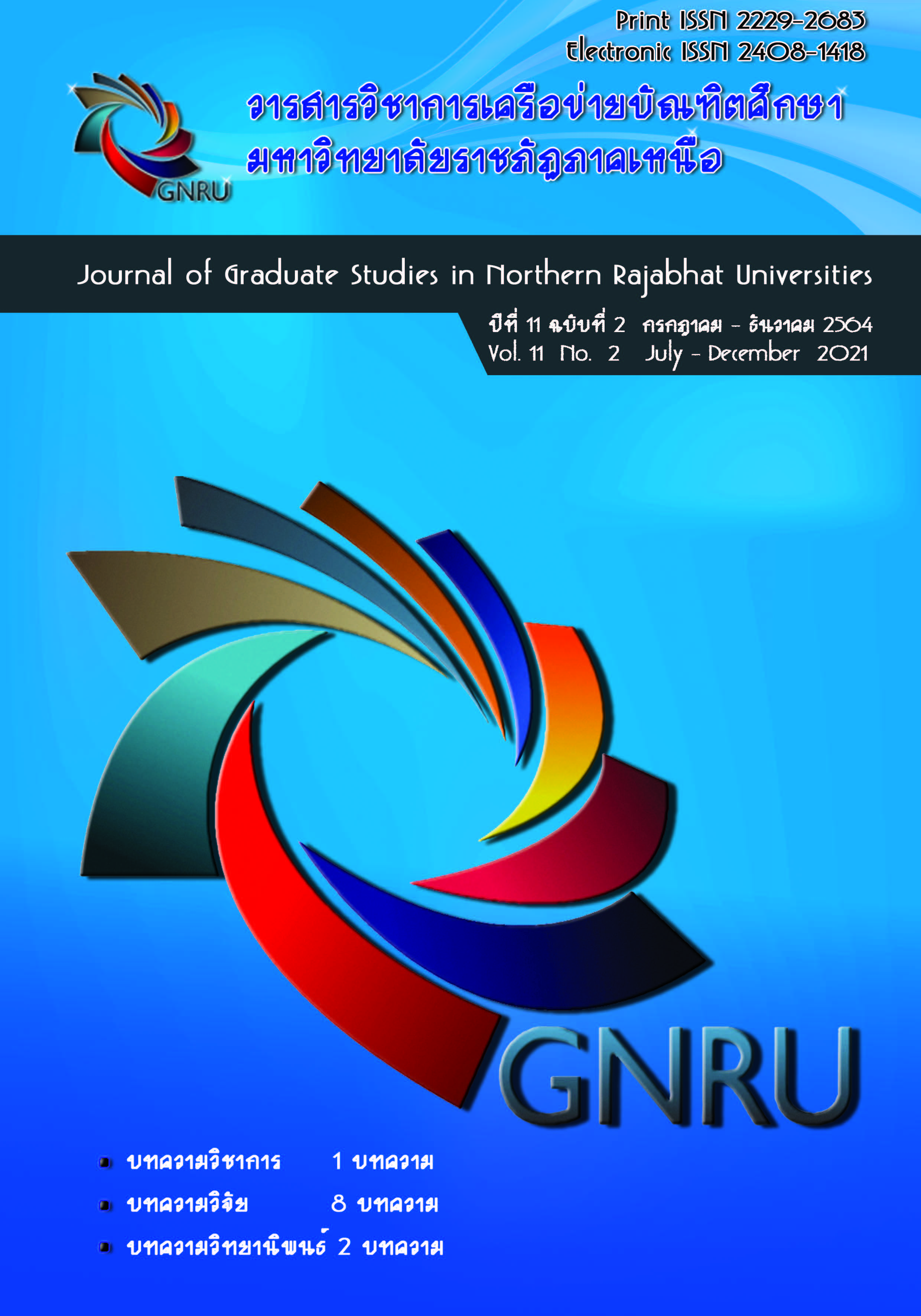The Effects of Peer Interaction on English Reading Comprehension and Learning Motivations of EFL Students at Nakhon Sawan Rajabhat University, Thailand
Main Article Content
บทคัดย่อ
The purpose of this study was to investigate the effects of peer interaction on English reading comprehension, learning motivations, and self-perception of EFL students at Nakhon Sawan Rajabhat University, Thailand. This research was carried out through an experimental design with experimental and control groups. In the second semester of the 2013 Academic Year, 50 second year students majoring in English (Teacher Education) formed the experimental and the control groups. They were all randomly chosen. Peer interaction techniques were applied to the experiment group for 8 weeks while the control group was educated through traditional methods in teaching reading English for comprehension. The data of the research were gathered by the Learning Achievement Test for English Reading Comprehension, the Questionnaire on Motivation for Learning English in General, the Questionnaire on Motivation for Reading Comprehension, and the Questionnaire on Self-Perception for Reading Comprehension. The results demonstrated that the researcher-mediated learning environment, i.e. the group engaged in peer interaction techniques, was successful in enhancing reading comprehension achievement. The students’ motivation for learning English in general and for reading comprehension, and students’ self-perception for reading comprehension were increased significantly.
Article Details
เอกสารอ้างอิง
Bonwell, C. (2000). Select Active Learning Articles (1995-1999): Active Learning Workshops, Green Mountain Falls.
Bonwell, C. & Eison, J. (1991). Active Learning: Creating Excitement in the Classroom. AEHE-ERIC Higher Education Report, 1. Washington, D.C.: Jossey-Bass.
Brown, W.H., & Conroy, M.A. (2001). Promoting peer-related social-communicative competence in preschool children with developmental delays. in H. Goldstein, L. Kaczmarek, & K. English (Eds.), Promoting social communication in children and youth with developmental disabilities. (pp. 173-210). Baltimore: Brookes.
Fuchs, D., Fuchs, L., Mathes, P., & Simmons, D. (1997). Peer-assisted learning strategies: Making classrooms more responsive to academic diversity. American Educational Research Journal, 34, 174-206.
Krashen, Stephen D. (1988). Second Language Acquisition and Second Language Learning. Prentice-Hall International.
McMaster, K. L., Fuchs, D., & Fuchs, L. S. (2006). Peer-assisted learning strategies: The promise and limitations of peer-mediated instruction. Reading and Writing Quarterly, 22, 5-25.
Mclnerney, D. M., & Liem, A. D. (2008). Motivation theory and engaged learning. In P.A. Towndrow, C. Koh, & H. S. Tan (Eds.), Motivation and practice for the classroom (pp. 11-36). Rotterdam /Taipei: Sense Publishers.
Mclnerney, D. M., & Liem, A. D. (2008). Reading in the Content Areas: Social Studies. Mc Graw Hill.
Rohrbeck, A.C. and others (2003). Peer-Assisted Learning Interventions with Elementary School Students: A Meta-Analytic Review. Journal of Educational Psychology, 95(2), 245-257.
Roscoe, R. D., & Chi, M. T. H. (2007). Understanding tutor learning: Knowledge-building and knowledge-telling in peer tutors' explanations and questions. Review of Educational Research, 77(4), 534-574.
Steven, A. M., William, A. H., & Barbara, A. M. (2009). Validation of a Reader Self-Perception Scale (RSPS2) for Use in Grades 7 and Above. Paper presented the annual meeting of the Northeastern Educational Research Association, Rocky Hill. CT October 21-23, 2009.
Steven, A. M., William, A. H., & Barbara, A. M. (2009). Temasek Foundation Thai Project Development of curriculum, methodologies and materials English language lecturers of Rajabhat universities. Thailand (2013).
Topping, K.J. (2001). Peer Assisted Learning: A Practical guide for teachers. Cambridge MA: Brookline Books.
VanPatten, B. (1996). Input processing and grammar instruction: Theory and research. Norwood, NJ: Lawrence Erlbaum.


